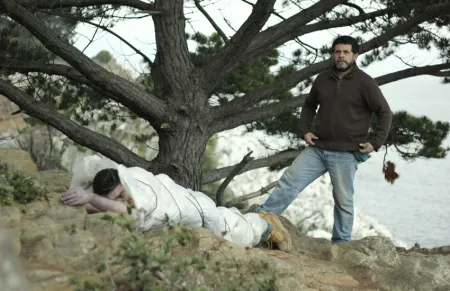
Colombia’s movie industry has grown exponentially, and is now Latin America´s fourth largest, with over 20 productions last year. The new cinematic voices of Gamboa and Guerra approach the past and present of the conflict, in a distinct way. “Desterrada” and “Mateo” strike a timely chord and pose some powerful and urgent questions. What does it take to forgive and make peace? Can art help?
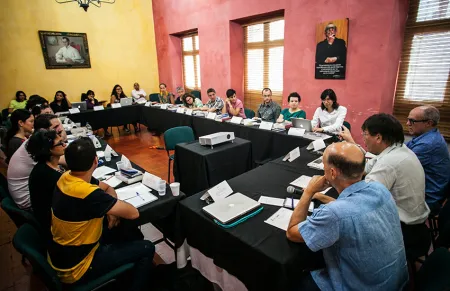
The Gabriel García Márquez Fellowship in Cultural Journalism is divided into two modules: film and popular culture. All modules were coordinated by the FNPI master lecturer Héctor Feliciano and the American journalist Jonathan Levi.
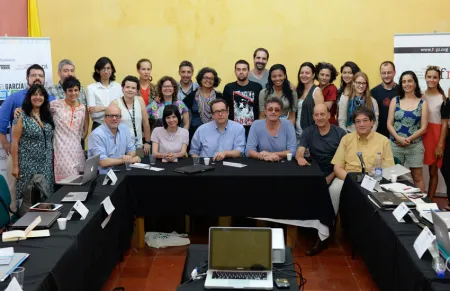
Meet the journalists that will join us in Cartagena and Aracataca during the 2 weeks to explore the popular culture that inspires Gabriel García Márquez.
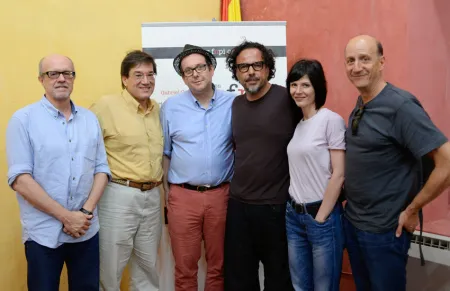
Meet the masters and experts who will lead the second edition of the Gabo Fellowship, held in Cartagena and Aracataca.
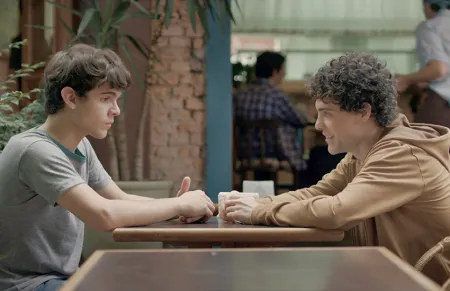
There’s nothing remotely racy about “The Way He Looks,” a tender romantic comedy about the budding romance between Leo and Gabriel, but even so, the crowd buzzed with nervous titters every time the two protagonists flirted or even eyed one another. And then at the end of the squirmy session, even before the credits start rolling, the audience burst into cheers, and a crowd of snapshot-seekers enveloped director Daniel Ribeiro.
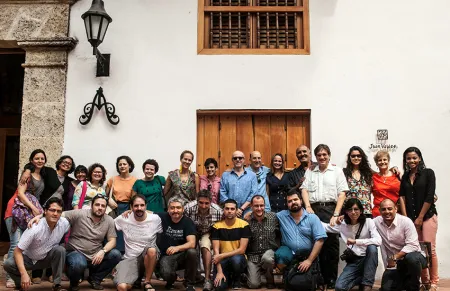
The aim of this workshop is to use the themes of music, literature, and popular culture to strengthen the foundations on which cultural journalism is built, specifically the interview, extended reportage, and critical commentary. This will also be an opportunity to reflect on the role of cultural journalism in an era in which the creator and the audience can increasingly communicate more directly, facilitated by digital media.

The American alternative cartoonist and illustrator was fully aware of the harsh lens under which literature lovers have viewed his book. People tend to dislike a newer version of something they’ve grown to admire. “Who is this man tampering with Kafka? How dare he? I know people had thought of my book like that before they read it. It’s natural. Personally I didn’t get around to thinking too hard or I wouldn’t have done it. I went with my instinct.”

Sheers and the director, Stephen Rayne, traveled around the UK, visiting barracks, personnel recovery units and rehabilitation centers. “We became well-acquainted with the names of certain drugs, types of prosthetics, military jargon”, wrote Sheers in The Guardian. Even before he interviewed the soldiers, Sheers wrote the humorous “medication song”, a list of medication – ibuprofen, paracetamol, omeprazole, esomeprazole, fluoxetin, citalopram – representing their addiction to drugs prescribed for their physical and psychological trauma.
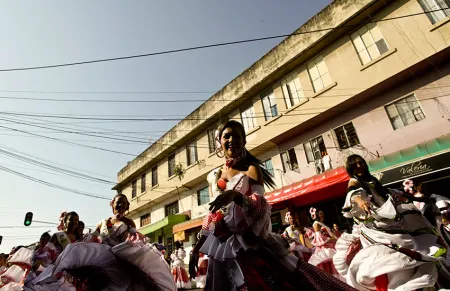
What I loved about the carnival fervor was the way that it touched every corner of the city. Although everyone, rich and poor, criticized it roundly for becoming more commercial with each passing year – “Now it’s all about TV cameras and big carriages and big balcaos and girls with big boobs,” one young girl told me angrily – no one can imagine life without it.

When The Sense of an Ending won the Booker Prize in 2011, Salman Rushdie tweeted: “Congratulations to #JulianBarnes on winning the #Booker. Long overdue, my friend, Bravo.” Barnes has been a Booker bridesmaid three times, so Rushdie’s sentiment was amply shared by all those who have enjoyed Barnes’ cool and erudite prose and been unsettled by it.
